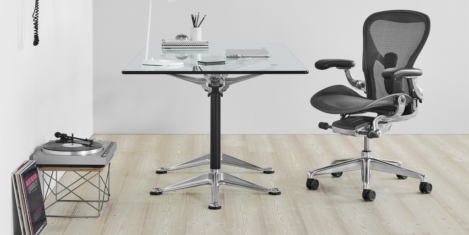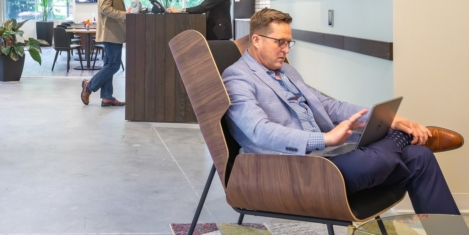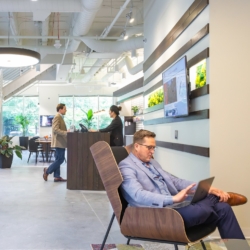To provide the best experiences, we use technologies like cookies to store and/or access device information. Consenting to these technologies will allow us to process data such as browsing behaviour or unique IDs on this site. Not consenting or withdrawing consent, may adversely affect certain features and functions.
The technical storage or access is strictly necessary for the legitimate purpose of enabling the use of a specific service explicitly requested by the subscriber or user, or for the sole purpose of carrying out the transmission of a communication over an electronic communications network.
The technical storage or access is necessary for the legitimate purpose of storing preferences that are not requested by the subscriber or user.
The technical storage or access that is used exclusively for statistical purposes.
The technical storage or access that is used exclusively for anonymous statistical purposes. Without a subpoena, voluntary compliance on the part of your Internet Service Provider, or additional records from a third party, information stored or retrieved for this purpose alone cannot usually be used to identify you.
The technical storage or access is required to create user profiles to send advertising, or to track the user on a website or across several websites for similar marketing purposes.
 New research by Vita Health Group claims British parents are set to spend the equivalent of more than two working days extra a month on the school routine due to the additional childcare management needed due to the pandemic and employers will have to consider this in their workplace policies to ensure working parents don’t burn out. More →
New research by Vita Health Group claims British parents are set to spend the equivalent of more than two working days extra a month on the school routine due to the additional childcare management needed due to the pandemic and employers will have to consider this in their workplace policies to ensure working parents don’t burn out. More →





 A new study by
A new study by 












 Flexible working arrangements are those which ‘allow employees to vary the amount, timing or location of their work’ and may include part-time working, mobile/home working, compressed hours or job-sharing – among others. Before the lockdown, according to the Chartered Institute of Personnel Development (CIPD), more than half of all employees in the UK used at least one form of flexible working, while a study by Gallup in the US suggests as many as 43 percent of employees already worked flexibly. The practice has been found to have positive effects on job satisfaction, employee commitment, reducing work-family conflict – and for many is now an essential component of modern working life.
Flexible working arrangements are those which ‘allow employees to vary the amount, timing or location of their work’ and may include part-time working, mobile/home working, compressed hours or job-sharing – among others. Before the lockdown, according to the Chartered Institute of Personnel Development (CIPD), more than half of all employees in the UK used at least one form of flexible working, while a study by Gallup in the US suggests as many as 43 percent of employees already worked flexibly. The practice has been found to have positive effects on job satisfaction, employee commitment, reducing work-family conflict – and for many is now an essential component of modern working life. 


 Productivity has increased due to the current lockdown situation, according to around half of UK workers. The majority (56 percent) of workers who don’t usually work from home feel more productive than in the office. Despite this, 50 percent of those currently working from home are looking forward to their workplace reopening, although 70 percent hope their employer lets them work from home more often in future. Nearly half (45 percent) of workers would therefore welcome a
Productivity has increased due to the current lockdown situation, according to around half of UK workers. The majority (56 percent) of workers who don’t usually work from home feel more productive than in the office. Despite this, 50 percent of those currently working from home are looking forward to their workplace reopening, although 70 percent hope their employer lets them work from home more often in future. Nearly half (45 percent) of workers would therefore welcome a 









August 20, 2020
Working from home and the future of work. How quaint
by Mark Eltringham • Comment, Flexible working, Technology
More →